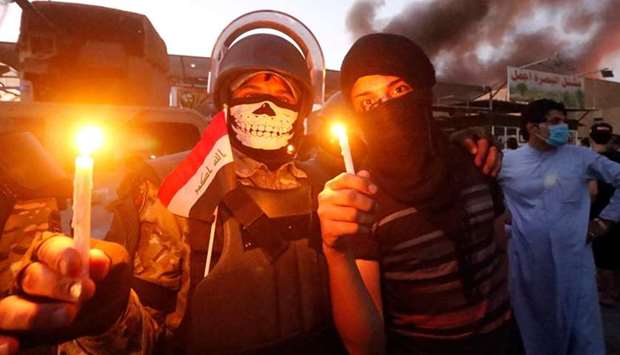Iraqi protesters set fire to several government buildings in the southern city of Basra on Thursday after authorities cancelled a proposed curfew that was aimed at quelling demonstrations.
Witnesses told dpa that black smoke covered the area around the provincial government building on Thursday as hundreds of protesters gathered outside despite a heavy security presence.A second building was also burned, according to the website of broadcaster al-Sumaria TV.
Protesters took to the streets in different parts of Basra beginning in the afternoon to defy a curfew proposed by the government – the second announced this week.
Commander of Basra operations Lieutenant-General Jamil al-Shammari cancelled Thursday's curfew minutes before it was scheduled to go into effect. His decision came after protesters took to the streets,
which made it difficult for security forces to enforce the curfew.
The Iraqi government had on Tuesday imposed a night-time curfew and deployed large numbers of security forces across Basra, mainly around government buildings and banks, after protesters set fire to two facilities.
The curfews were aimed at quelling this week's protests, during which residents criticized a lack of basic services, including drinking water, and job opportunities in the oil-rich province. The protests, the latest in a spate of social unrest in Basra, are led by young people and clan figures disappointed at what they say is an acute shortage of electricity and high salinity in drinking water.
Since Saturday, nine protesters were killed and 93 injured in clashes with security forces, according to the Iraqi High Commission for Human Rights. Eighteen security personnel were also injured.
Iraq's Health Ministry put the death toll at six and said more than 6,000 people suffered from diarrhoea due to water contamination.
In July, anti-government protests broke out in Basra over a lack of efficient services and soon spread to other parts of Iraq. The central government at the time promised to improve the services.
The latest protests come as Iraq's newly elected parliament struggles to elect a speaker, with two alliances claiming that they formed the largest parliamentary bloc with the right to name the new prime
minister.

